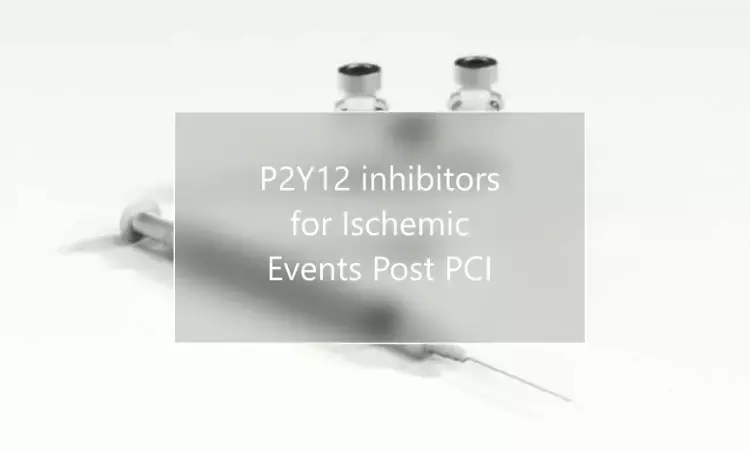- Home
- Medical news & Guidelines
- Anesthesiology
- Cardiology and CTVS
- Critical Care
- Dentistry
- Dermatology
- Diabetes and Endocrinology
- ENT
- Gastroenterology
- Medicine
- Nephrology
- Neurology
- Obstretics-Gynaecology
- Oncology
- Ophthalmology
- Orthopaedics
- Pediatrics-Neonatology
- Psychiatry
- Pulmonology
- Radiology
- Surgery
- Urology
- Laboratory Medicine
- Diet
- Nursing
- Paramedical
- Physiotherapy
- Health news
- Fact Check
- Bone Health Fact Check
- Brain Health Fact Check
- Cancer Related Fact Check
- Child Care Fact Check
- Dental and oral health fact check
- Diabetes and metabolic health fact check
- Diet and Nutrition Fact Check
- Eye and ENT Care Fact Check
- Fitness fact check
- Gut health fact check
- Heart health fact check
- Kidney health fact check
- Medical education fact check
- Men's health fact check
- Respiratory fact check
- Skin and hair care fact check
- Vaccine and Immunization fact check
- Women's health fact check
- AYUSH
- State News
- Andaman and Nicobar Islands
- Andhra Pradesh
- Arunachal Pradesh
- Assam
- Bihar
- Chandigarh
- Chattisgarh
- Dadra and Nagar Haveli
- Daman and Diu
- Delhi
- Goa
- Gujarat
- Haryana
- Himachal Pradesh
- Jammu & Kashmir
- Jharkhand
- Karnataka
- Kerala
- Ladakh
- Lakshadweep
- Madhya Pradesh
- Maharashtra
- Manipur
- Meghalaya
- Mizoram
- Nagaland
- Odisha
- Puducherry
- Punjab
- Rajasthan
- Sikkim
- Tamil Nadu
- Telangana
- Tripura
- Uttar Pradesh
- Uttrakhand
- West Bengal
- Medical Education
- Industry
P2Y12 inhibitors Reduce Ischemic Events in First 2 hours Post PCI

Patients undergoing percutaneous coronary intervention (PCI) are at risk of thrombotic complications including stent thrombosis causing myocardial infarction. A recent study suggests that treatment with cangrelor, an intravenous P2Y12 inhibitor, reduces these ischemic events in the first 2 hours after PCI. The study findings were published in the journal Circulation: Cardiovascular Interventions on December 17, 2021.
Periprocedural MI events are associated with high morbidity and mortality. Therefore, adjunctive medications are used at the time of PCI to prevent thrombus formation by inhibiting both platelet activation and thrombin formation.
The CHAMPION PHOENIX trial (A Clinical Trial Comparing Cangrelor to Clopidogrel Standard of Care Therapy in Subjects Who Require Percutaneous Coronary Intervention) have shown that thrombotic events are reduced with cangrelor, an intravenous P2Y12 inhibitor. However, the timing, number, and type of events that occurred during the cangrelor infusion remain unclear. Therefore, Dr Deepak L. Bhatt and his team conducted a study to characterize the timing, number, and type of early events (within 2 hours of randomization) in CHAMPION PHOENIX.
CHAMPION PHOENIX was a double-blind, placebo-controlled trial that randomized patients undergoing percutaneous coronary intervention to cangrelor or clopidogrel. In this present study, the researchers assessed the efficacy of cangrelor in the first 2 hours post-randomization with regards to the primary endpoint (death, myocardial infarction, ischemia-driven revascularization, or stent thrombosis). They further performed sensitivity analyses evaluating a secondary, post hoc endpoint (death, Society of Coronary Angiography and Intervention myocardial infarction, ischemia-driven revascularization, or Academic Research Consortium definite stent thrombosis).
Key findings of the study:
- Upon analysis, the researchers found that 63% of events occurred within 2 hours of trial randomization.
- The most common events observed were MI, followed by stent thrombosis, ischemia-driven revascularization and death.
- In the first 2 hours after randomization, they noted that the cangrelor significantly decreased the primary composite endpoint compared with clopidogrel (4.1% versus 5.4%; hazard ratio, 0.76).
- They reported that the findings for the secondary post hoc composite endpoint were also similar (1.6% vs. 0.9%; HR = 0.57).
- They further noted that the the benefit of cangrelor was driven by early reductions in SCAI MI (1.4% vs. 0.8%; HR = 0.59;) and stent thrombosis at 2 hours (1.3% vs. 0.7%; HR = 0.53).
- Between 2 and 48 hours, they found no difference in the primary composite endpoint (0.6% versus 0.5%; odds ratio, 1.17).
- They noted that early moderate or severe bleeding events were infrequent and found no significant difference with cangrelor compared with clopidogrel (0.2% [n=10] versus 0.1% [n=4]; adjusted odds ratio, 1.41).
The authors concluded, "The reductions in ischemic events and overall efficacy seen with cangrelor in CHAMPION PHOENIX occurred early and during the period of time in which patients were being actively treated with cangrelor. These findings provide evidence that supports the importance of potent platelet inhibition during percutaneous coronary intervention."
For further information:
DOI: https://doi.org/10.1161/CIRCINTERVENTIONS.120.010390
Medical Dialogues Bureau consists of a team of passionate medical/scientific writers, led by doctors and healthcare researchers. Our team efforts to bring you updated and timely news about the important happenings of the medical and healthcare sector. Our editorial team can be reached at editorial@medicaldialogues.in.
Dr Kamal Kant Kohli-MBBS, DTCD- a chest specialist with more than 30 years of practice and a flair for writing clinical articles, Dr Kamal Kant Kohli joined Medical Dialogues as a Chief Editor of Medical News. Besides writing articles, as an editor, he proofreads and verifies all the medical content published on Medical Dialogues including those coming from journals, studies,medical conferences,guidelines etc. Email: drkohli@medicaldialogues.in. Contact no. 011-43720751


